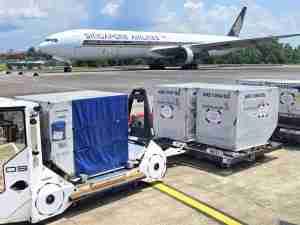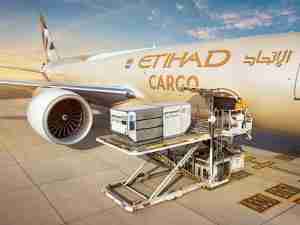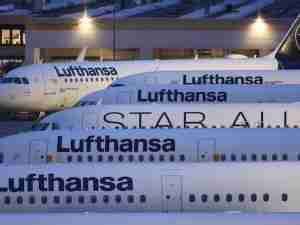Ryanair Chief Sees End to Pilot Crunch as Earnings Feel Pinch
By: | Oct 31 2017 at 07:15 AM | Air Cargo
Ryanair Holdings Plc Chief Executive Officer Michael O’Leary said Europe’s biggest discount carrier can raise pay for disgruntled pilots and still retain a pricing advantage over rivals after a staffing crunch led profit to slide in its busiest quarter.
O’Leary pledged Tuesday to press on with a review of flight rosters, bases and salaries as he seeks a permanent solution to a meltdown that left Ryanair short of flight crew at the end of the peak summer season. The stock posted its biggest gain in almost a year after the Irish carrier said it aims to hire pilots from recently failed rivals and is offering 20 percent more pay than peers such as Norwegian Air Shuttle ASA.
While the proposed salary award would increase annual costs by 100 million euros ($116 million) if accepted across the company, O’Leary said that it “will not significantly alter the substantial unit-cost advantage we have over all other European Union airline competitors.”
Ryanair scrapped more than 20,000 flights amid a botched rescheduling of pilot leave in response to changes in labor law and the poaching of staff by competitors including Norwegian. The cuts have slowed expansion plans, encouraged cockpit crew to push for unionization and sparked a consumer backlash. Despite those headwinds, O’Leary stood by a forecast for full-year net income between 1.4 billion euros to 1.45 billion euros.
Shares of Ryanair rose as much as 5.8 percent, the biggest gain since Nov. 7, and were trading 5.4 percent higher at 16.60 euros as of 10:02 a.m. in Dublin, valuing the company at 19.6 billion euros.
‘Perfect Storm’
O’Leary said the rostering mess up—which has led to a complete change of all managers involved—resulted from a “perfect storm” that also included an insufficient focus on pilot recruitment over the summer and a bottleneck in deploying new officers following training. Ryanair should also have responded more quickly to a tightening market by lifting pay for experienced personnel and improving the range of bases and contracts on offer, he added.
The company said it has seen a surge in pilot applications in recent weeks after insolvency filings at Air Berlin Plc, Alitalia SpA and Britain’s Monarch Airlines, and has a waiting list of 2,500 qualified crew wanting to join.
O’Leary stood firm in his opposition to meeting with outside pilot groups, saying negotiations must be through the existing structure of employee representative committees. He dismissed as bizarre the involvement of labor organizations from Southwest Airlines Co. and American Airlines Group Inc. in a unionization push.
Stansted Plea
At the same time, the CEO encouraged pilots at London Stansted, Ryanair’s biggest base, to reconsider their opposition to the pay offer. New captains will in any case get the improved rate of 135,600 pounds ($179,000) a year, versus 112,600 pounds for Boeing Co. 737 pilots at Norwegian and 110,700 pounds at U.K. rival Jet2, he said. More than 10 bases have reached a deal.
Net income in the three months to Sept. 30 fell 2 percent to 895 million euros as Ryanair shelled out 25 million euros in refunds to more than 700,000 passengers hit by the cancellations. Analysts had anticipated a figure of 937 million euros, based on the average of eight estimates compiled by Bloomberg.
Punctuality has improved as a result of the steps, with 90 percent of flights now on time, up from a low of 70 percent in the first half of September.
Price declines stabilized over the summer, so that first-half earnings showed an 11 percent gain, demonstrating the robustness of Ryanair’s business model even amid the “material failure” of pilot rostering, according to O’Leary.
Ryanair will also be buoyed by the industry bankruptcies, he predicted, saying fares will rise as a result of the reduction in capacity and purchase of assets by full-service carriers, both boosting yields and enhancing his company’s pricing edge.
Fares fell 5 percent in the fiscal first half, compared with an initial forecast for an 8 percent slide, and are set to drop by 4 to 6 percent in the second six months, better than an earlier prediction of 5 to 7 percent.
While seeking to put the staffing crisis behind him, O’Leary showed some of his characteristic brio, warning pilots that they have “the best job security in Europe” and pledging to pile on capacity in Germany, Italy and the U.K. to exploit new opportunities.










